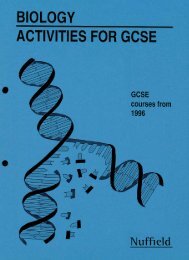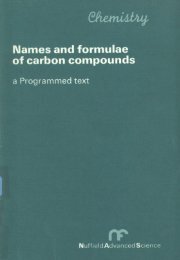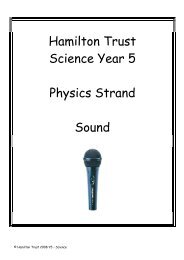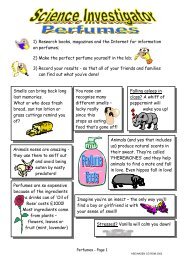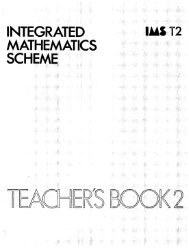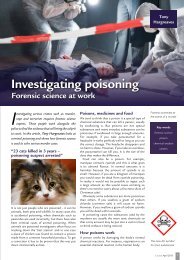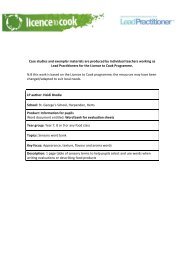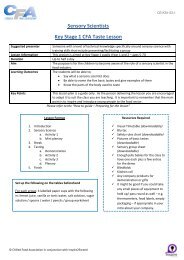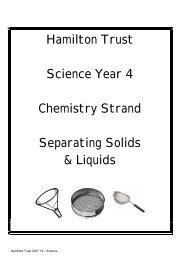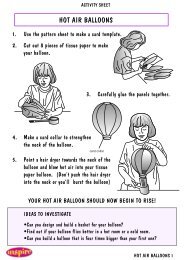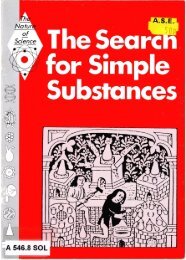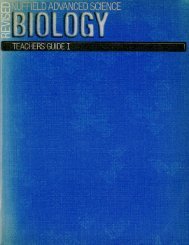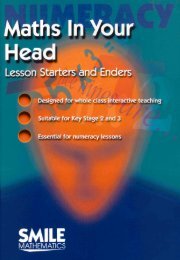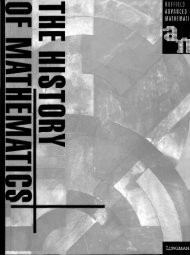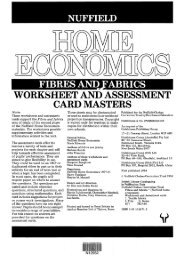Louis Pasteur by Nicola Kingsley - National STEM Centre
Louis Pasteur by Nicola Kingsley - National STEM Centre
Louis Pasteur by Nicola Kingsley - National STEM Centre
Create successful ePaper yourself
Turn your PDF publications into a flip-book with our unique Google optimized e-Paper software.
20<br />
I<br />
ChaQter 4<br />
A theory of disease<br />
t can take a long time, often years, to collect the<br />
I<br />
experimental evidence needed to support a scientific<br />
theory. <strong>Pasteur</strong> was usually working on several different<br />
projects side <strong>by</strong> side. He worked very hard,<br />
sometimes resenting the fact that he had to stop to sleep. "I<br />
would consider it a bad deed", he said, "to let one day go<br />
without working".<br />
By now he had several assistants working with him. He did<br />
not make life easy for them. He never told them what he<br />
was thinking and why he wanted an experiment done. He<br />
just gave them their tasks, and expected them to get on<br />
with it-in silence. <strong>Pasteur</strong> needed silence to work. He<br />
could not bear to have anyone in the laboratory who was<br />
not involved in the work he was doing. He had a particular<br />
way of working on a new theory. He began <strong>by</strong> spending<br />
days in isolation, reading. Then he would pace up and<br />
down silently for days; at these times he was so wrapped up<br />
in his thoughts that he did not notice anyone else. If<br />
someone needed to talk to him, it took a while to attract<br />
his attention. Then he would start suddenly and pass his<br />
hand several times in front of his face, as if waking himself<br />
from a dream. "Dreamy" was a word his colleagues often<br />
used to describe him. He allowed his imagination and<br />
intuition to work. Some of the ideas he considered were<br />
very strange, but once a theory had taken shape in his<br />
mind, he would put it to the test. He would make<br />
predictions from it and tryout experiments. If the<br />
predictions were wrong, out went the theory.<br />
In the years following his work on the Theory of<br />
Spontaneous Generation he was very busy. He was a<br />
professor, teaching science. In addition to this he was<br />
asked to help his country <strong>by</strong> solving problems that were



